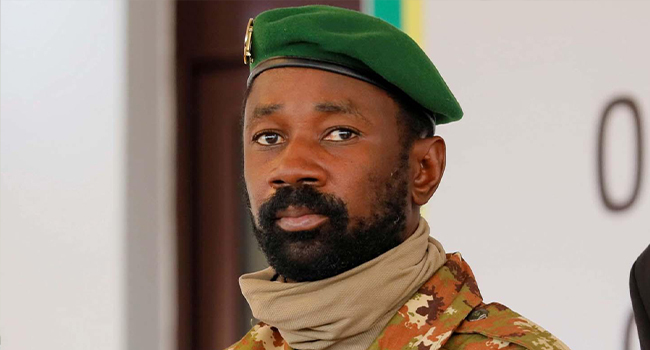By Emmanuel Nduka Obisue
Two-month fuel blockade imposed by al-Qaeda-linked militants has plunged Mali’s capital, Bamako, into near paralysis, posing the most serious challenge yet to the country’s military junta and heightening fears of a possible political collapse.
Security analysts say the group, Jama’at Nusrat al-Islam wal-Muslimin (JNIM), which has operated within 50 kilometres of the city for months, lacks the capacity or intent to capture Bamako, home to about four million people. However, its tactic of cutting off fuel supplies, forcing schools to shut and crippling businesses dependent on diesel power, has struck at the core of daily life.
According to several diplomats and analysts cited by Reuters, JNIM’s broader goal may be to provoke another coup, Mali’s third since 2020, thereby deepening instability and allowing the jihadists to expand their influence. A Control Risks report warned last week that “with JNIM’s activity putting unprecedented pressure on the government, the risk of a collapse of the regime, whether through a coup or another form of political crisis, will be very high over the coming weeks”.
In a September statement, JNIM said the blockade targeted “these bandits who are in power,” accusing the junta of persecuting ordinary Malians. The government has yet to comment on the crisis.
Originally born out of a 2012 Tuareg rebellion, JNIM has expanded its reach from northern Mali into central areas and across borders into Burkina Faso and Niger. The military ruler, Assimi Goïta, who seized power in 2021 promising to defeat Islamist insurgents, has struggled to contain the threat despite cutting defence ties with France and the U.S. and turning to Russia for support.
The militants have intensified attacks this year, overrunning military posts, looting weapons, and recently securing a reported $50 million ransom for two Emirati hostages. They have also expanded into southern and western Mali, enabling them to enforce the blockade by targeting convoys from coastal neighbours such as Côte d’Ivoire and Senegal.
“The fuel blockade is more than an act of economic warfare – it is also a terrorist tactic,” said Justyna Gudzowska, Executive Director at The Sentry. “It instils fear among Bamako’s ruling elite and the general population, creating the perception that the capital is under siege”.
Diplomats warn that further instability in Mali could undermine its alliance with Burkina Faso and Niger, whose juntas are also battling jihadist insurgencies. “If Mali collapses, everything collapses,” said one senior diplomat in Bamako.
Although public outrage has been muted amid fears of government reprisals, residents quietly express despair over the worsening fuel shortages. “It’s been complicated these past weeks,” said Abdoulaye, a part-time driver, who queues overnight for petrol.
Analysts fear internal divisions within the military could compound the crisis. Two generals were arrested in August for allegedly plotting against the regime. “I don’t think the regime is strong enough to hold onto power indefinitely,” said one security expert.
While a direct jihadist takeover of Bamako remains unlikely, JNIM’s previous occupations of towns elsewhere have been marked by harsh restrictions, extrajudicial killings, and forced veiling for women. Foreign embassies, including those of the U.S., Britain, and Italy, have already urged citizens to leave the country.
For now, flights continue and panic has yet to set in, but as one diplomat warned: “No scenario at this point can be excluded. We cannot rule out the possibility that JNIM might try to enter the city”.




































